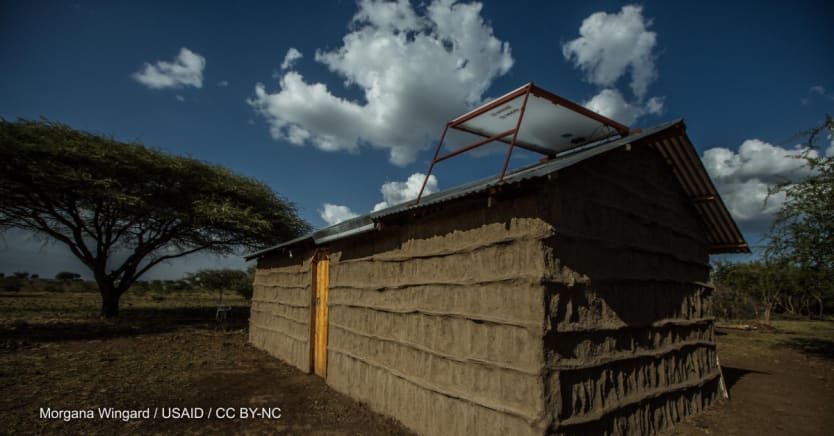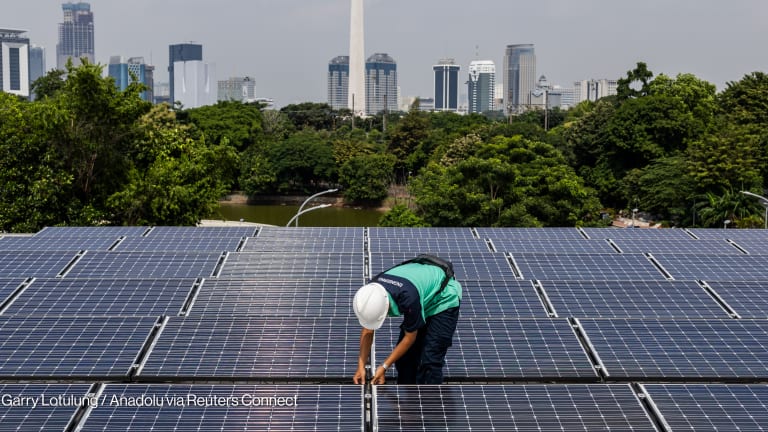
As we saw last month at COP 26, the international imbalances of the climate crisis are coming to the fore. Responsibility for preventing catastrophe is falling disproportionately on the lower-income countries that did least to cause it and are least able to bear the cost.
High-income countries are responsible for a great share of the historical carbon dioxide emissions in the atmosphere today — 79% of those from 1850 to 2011. Africa and the Middle East together account for under 5% of these emissions. High-income countries also continue to have much higher per capita emissions than most of the rest of the world. Meanwhile, the populations of lower-income countries — particularly children, as well as people in small island developing states — are vastly more vulnerable to the devastating effects of climate change.
The global response to the climate crisis must be fair to be effective. Yet international policies risk undermining climate justice for lower-income countries by prioritizing near-term emission reductions over broader support for economic development and green energy transitions. This approach could severely hinder poverty alleviation, structural transformation, and climate resilience.
We must keep building stronger cooperation and exchange among all nations on an equal footing, together with civil society and the private sector.
—Global environmental commitments will hinge on lower-income countries receiving the support they need to improve living standards, industrialize, and create jobs via sustainable approaches. High-income nations have failed to deliver on the $100 billion per year in climate finance they pledged to lower-income countries in 2009, contributing just $79.6 billion in 2019.
Take energy consumption — the largest source of greenhouse gas emissions from human activities as an example. Lower-income countries must contribute to the global clean energy transition while simultaneously meeting the needs of billions of people who lack access to the basic energy supplies indispensable for achieving better living standards and economic growth.
In 2019, 770 million people were living without access to electricity — a record low in recent years. Over 2.6 billion people do not have access to clean cooking facilities, relying instead on wood, kerosene, or coal.
The costs of air pollution are colossal. Household air pollution causes some 3.8 million deaths per year, and ambient air pollution leads to about 4.2 million deaths annually. Ambient and household air pollution caused 700,000 deaths in Africa alone in 2013 — a toll that has since risen at an alarming rate, as the Organisation for Economic Co-operation and Development’s forthcoming “Africa’s Development Dynamics 2022” report will show.
I am from Iceland, a country that underwent a remarkable energy transition from coal and oil to renewables. This process, which spanned nearly a century, generated innovation, jobs, and growth far beyond the energy sector — for instance, leading to a booming geothermal tourism industry. Lower-income countries today face their own unique challenges, and they cannot afford to wait 100 years. Most are not as economically advanced as Iceland, although it must be noted that Iceland was not a wealthy country when its transition began.
In October, OECD countries struck a landmark deal to formally ban export credit support for unabated coal-fired power plants, and the European Commission said it would seek a ban on tapping new oil, coal, and gas deposits in the Arctic. Recently, “The Production Gap Report 2021” warned that global fossil fuel production must start declining immediately and steeply to be consistent with limiting long-term warming to 1.5 degrees Celsius.
However, if not well managed, such a transition could inflict unintended and harmful consequences for the populations of countries dependent on fossil fuel, many of which already live in poverty or fragile contexts.
Nigeria, for instance, has the world’s largest energy deficit: 85 million Nigerians — 43% of the population — lack access to grid-supplied electricity, which results in an estimated annual economic loss of up to 2% of gross domestic product. Meanwhile, petroleum accounts for 86% of the country’s total export revenues.
The principle of common but differentiated responsibilities and respective capabilities is a core tenet of the Paris Agreement. Yet producer countries are currently left to shoulder the majority of the transition burden, with limited support from importing countries, which could recognize their shared responsibility in ensuring an orderly and sustainable phaseout of fossil fuels in their producer counterparts.
The pathway toward net-zero emissions for the developing world’s hydrocarbon-producing economies needs to be defined. OECD is working on this by facilitating a multistakeholder process that brings together governments and industry through its Equitable Framework and Finance for Extractive-Based Countries in Transition. We at OECD hope that more countries and companies will join us.
International support must enable energy transitions that do more than decarbonize in low-emitting, energy-poor countries; such transitions also need to power job creation and economic diversification and improve access to electricity for households, paving the way for a prosperous, low-carbon future. Energy transitions should help these countries take full advantage of emerging low-carbon and renewable technologies and industries — not only as consumers but as producers, manufacturers, developers, and research hubs.
The United Nations climate conference was an opportunity — and, some would argue, a missed opportunity — for the international community to step up and make sure the right mechanisms are in place for lower-income countries to be fully involved in defining a fair transition.
We must keep building stronger cooperation and exchange among all nations on an equal footing, together with civil society and the private sector. Only then can the international community effectively support countries to find the right solutions to their specific development challenges and drive a global response to the climate crisis that does not undermine the very nations most devastated by its impacts.








